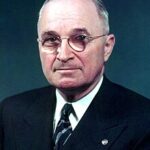President Harry Truman’s decision to fire General Douglas MacArthur represents one of America’s most dramatic civil-military confrontations. The Truman MacArthur firing occurred on April 11, 1951, during the height of the Korean War.
The Breaking Point
MacArthur publicly challenged Truman’s limited war strategy in Korea. The general advocated bombing China and using Nationalist Chinese forces. He criticized the administration’s restraint in congressional letters and media interviews. Truman viewed this as insubordination undermining presidential authority. ⚠️ The situation reached crisis levels when MacArthur’s March 24 ultimatum threatened Chinese leaders.
Constitutional Crisis Unfolds
The dismissal created an unprecedented showdown between military and civilian leadership. MacArthur enjoyed massive public support as a World War II hero. His firing appeared to many Americans as political persecution during wartime. 📊 Gallup polls showed 69% of Americans opposed the Truman MacArthur firing decision.
Public Backlash Erupts
MacArthur’s return to America triggered massive demonstrations and parades. Republican leaders called for Truman’s impeachment over the controversial decision. The general’s farewell address to Congress drew enormous television audiences. Critics accused Truman of appeasing communists and weakening military morale. 🔥 The controversy dominated headlines for months and damaged Truman’s presidency permanently.
Impact:
The Truman MacArthur firing fundamentally reshaped American civil-military relations and presidential power. The controversy demonstrated the Constitution’s supremacy over popular military figures.
Political Devastation
Truman’s approval ratings plummeted to historic lows following the dismissal. 🔥 Republicans gained significant political ammunition for the 1952 elections. The president faced intense congressional hearings and impeachment threats. Democratic Party unity fractured over the controversial military decision. Public opinion remained divided along partisan lines for years.
Constitutional Precedent Established
The firing reinforced civilian control over military operations and strategy. Future generals understood the limits of public policy criticism. Presidential authority over military commanders gained constitutional clarity through this crisis. 📉 However, public trust in executive decision-making during wartime declined significantly.
Long-term Military Consequences
The Korean War strategy remained limited without MacArthur’s aggressive approach. Military leadership became more cautious about public policy statements. Civil-military tensions persisted throughout the Cold War era. The precedent influenced later conflicts including Vietnam and Iraq. 🌍 International allies questioned American military unity and command structure.
Historical Legacy
Historians generally support Truman’s constitutional authority in the firing decision. The controversy highlighted tensions between democratic governance and military expertise. MacArthur’s dismissal became a case study in presidential crisis management. The decision ultimately strengthened civilian control principles in American government.
